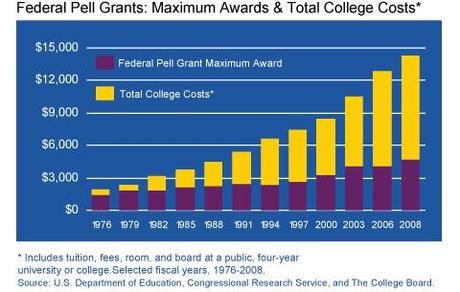 Last year at around this time, I wrote a piece about the state of public education as I prepared to start my junior year. Now, senior year is just around the corner, and it happens to be the last year that these musings will come to you exclusively from Monterey, MA. My college application process has almost begun in earnest. I'll be at Monument Mountain once more on September 1st, and will continue blogging as often as possible. In addition to posts here, you'll be able to find P.M.F.M. syndicated in the Maroon Tribune, the fledgling website of our school newspaper.
Last year at around this time, I wrote a piece about the state of public education as I prepared to start my junior year. Now, senior year is just around the corner, and it happens to be the last year that these musings will come to you exclusively from Monterey, MA. My college application process has almost begun in earnest. I'll be at Monument Mountain once more on September 1st, and will continue blogging as often as possible. In addition to posts here, you'll be able to find P.M.F.M. syndicated in the Maroon Tribune, the fledgling website of our school newspaper.To recap, I'm writing a post for the second consecutive year to philosophize about improving education. Exhibit A is the graph at the top. As you can see, the rising costs of college have far outpaced increases in federal Pell Grants for low-income students. It's becoming harder for the average person to finance a bachelor's degree, something that is a precious commodity in a lean employment market. Studies show those who possess Bachelor's degrees enjoy a quality of life markedly better than those who do not. For one, the unemployment rate for those with a four-year degree is just 5.2% (in 2009), much lower than the national average. Those who had at least a Bachelor's degree commanded a median household income of $73,446 per year, significantly higher than the national average of $45,016. Attaining an education remains the number-one tool for social mobility - that is to say, it is the primary way to accomplish the quintessentially American rags-to-riches narrative. Giving ambitious young people the means to better themselves is not only the right thing to do, it's also a highly effective way to grow the economy. An increase in the maximum grant (now $5,500 per year) could allow more students to pursue advanced knowledge and skills, areas in which the United States is beginning to lag behind developing countries and lose the competition for global jobs. Basically, Pell Grants make all kinds of sense. But not only is the program not growing to keep pace with the price of higher education, it's under attack.
I'm fortunate enough to be a solid candidate at a number of private colleges that will generously provide a full need-based scholarship if I'm accepted. I probably won't make use of Pell Grants to finance my college education. But that doesn't diminish my distaste for how an important, time-tested program is being branded as an unwieldy 'entitlement.' What really hits close to home is not the struggle to pay for college, but the cuts in local K-12 spending. Southern Berkshire Regional School District, a collaborative shared by five towns (including Monterey), has faced declining outlays from the federal and state governments in recent years. After the district was unable to raise the necessary capital from its constituent towns to bring its four buildings up to code this spring (anti-tax sentiment contributed heavily), discussions began about shuttering three of the schools to save up to $500,000 per year. Such a plan involves dozens of layoffs, the closing of three buildings that have acted as vibrant hubs of activity in our rural communities, and an unquestionably adverse effect on the local economy. Because the district is geographically expansive, daily bus rides for some children will last over one hour in each direction. Class sizes will increase. And, as belts tighten to make up the remainder of the shortfall, there will be fewer options for students to receive a quality education. In contrast, raising the funds and making the infrastructure improvements would preserve the jobs of teachers in the outlying schools and even create new jobs in construction, while allowing 107 children to keep attending schools located in their communities.
Our schools need funding to succeed, especially in rural areas where property values are lower and town budgets are stretched thin. Instead of slashing grants to local government, we need to spend smarter. That doesn't mean spending less. It means doing more with what we have, and increasing what we have if the system is still inadequate. Public education is one facet of the American dream that is certainly 'too big to fail.'

